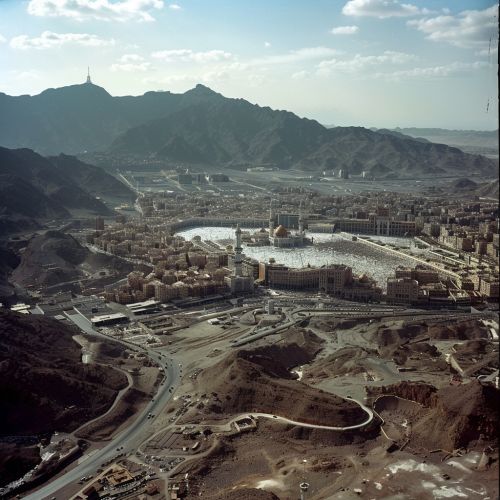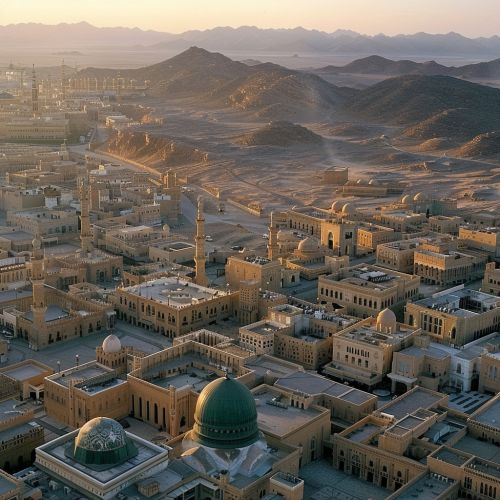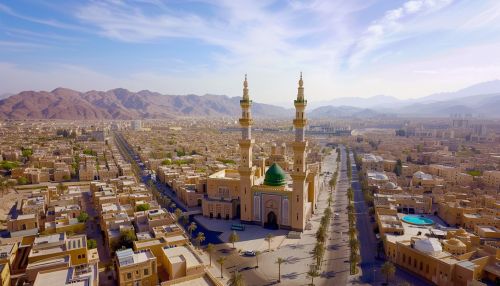Muhammad
Early Life
Muhammad was born in 570 CE in the city of Mecca, located in present-day Saudi Arabia. He belonged to the Quraysh tribe, which was a powerful and respected tribe of Mecca. His father, Abdullah, died before he was born, and his mother, Amina, died when he was just six years old, leaving him an orphan. He was raised by his grandfather, Abdul Muttalib, and later by his uncle, Abu Talib.


Prophethood
At the age of 40, Muhammad began to have revelations from Allah, which he claimed were delivered to him through the angel Gabriel. These revelations, which continued for approximately 23 years, are collectively known as the Quran, the holy book of Islam. Muhammad's teachings were not widely accepted in Mecca, and he and his followers faced severe persecution.
Migration to Medina
In 622 CE, Muhammad and his followers migrated to the city of Medina, an event known as the Hijrah. This migration marks the beginning of the Islamic calendar. In Medina, Muhammad established an Islamic state based on the laws revealed in the Quran and the inspired guidance coming to him from Allah. He became the political and spiritual leader of Medina, and his followers increased.
Battles and Conflicts
During his time in Medina, Muhammad and his followers were involved in a series of battles with the Meccans and other tribes. These included the Battle of Badr, the Battle of Uhud, and the Battle of the Trench. These battles were crucial in establishing the strength and credibility of the nascent Islamic state.
Death and Legacy
Muhammad died in 632 CE, at the age of 63, in Medina. His teachings and life continue to be revered by Muslims around the world, and he is considered the last prophet in Islam. His life and teachings have had a profound impact on millions of people, shaping the course of history.


